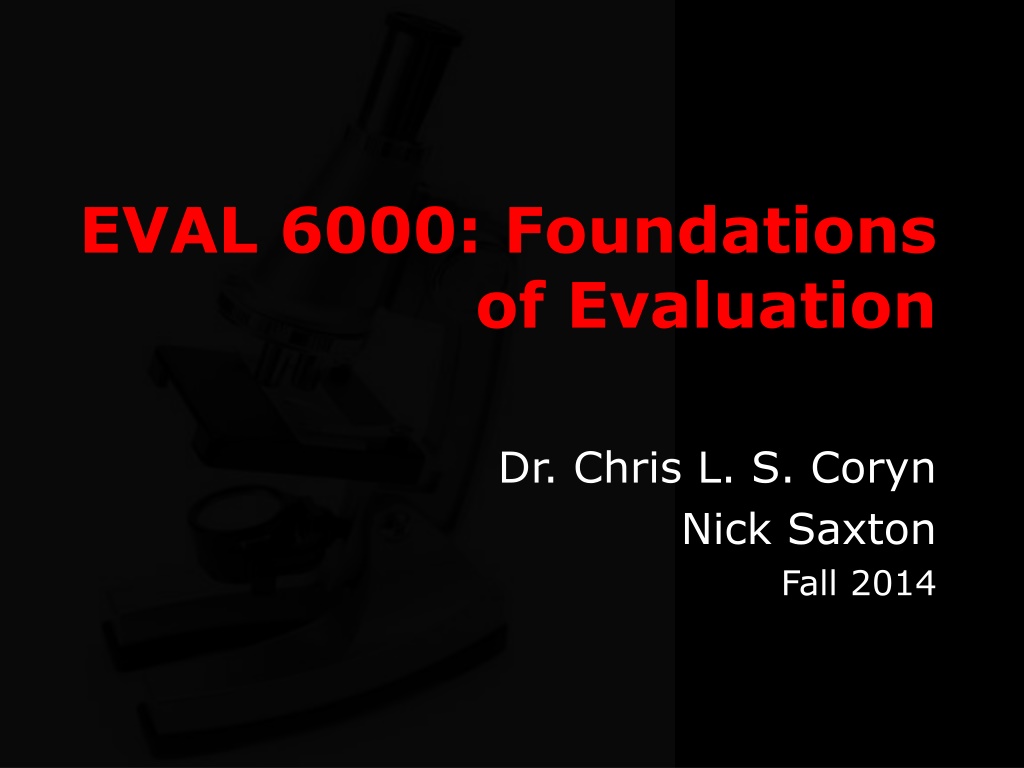
Foundations of Evaluation - Key Tasks and Considerations
Explore the essential aspects of evaluation, including budgeting, contracting, and collecting evaluative information. Delve into budgeting tasks, contracting checklist, and major considerations for collecting information. Gain insights into different types of budgets, contracting protocols, and best practices for gathering essential data in evaluation processes.
Download Presentation

Please find below an Image/Link to download the presentation.
The content on the website is provided AS IS for your information and personal use only. It may not be sold, licensed, or shared on other websites without obtaining consent from the author. If you encounter any issues during the download, it is possible that the publisher has removed the file from their server.
You are allowed to download the files provided on this website for personal or commercial use, subject to the condition that they are used lawfully. All files are the property of their respective owners.
The content on the website is provided AS IS for your information and personal use only. It may not be sold, licensed, or shared on other websites without obtaining consent from the author.
E N D
Presentation Transcript
EVAL 6000: Foundations of Evaluation Dr. Chris L. S. Coryn Nick Saxton Fall 2014
Agenda Budgeting evaluations Contracting evaluations Collecting evaluative information
General types of budgets Fixed price Only allows expenditures as projected Grants Unused funds typically not returned Cost-reimbursable Only actual expenditures are billed Other budget types See Table 20.5 on p. 492
Budgeting tasks 1. Ensure that evaluation design is sufficiently detailed 2. Determine the type of budget agreement 3. Determine the needed level of budget detail 4. Determine pertinent cost factors 5. Determine line items 6. Group line items 7. Determine local contribution, if any 8. Computed all costs and charges 9. Determine costs associated with institutional accountability 10.Clarify requirements for payment
Contracting checklist 1. Basic considerations 2. Information 3. Analysis 4. Synthesis 5. Reports 6. Reporting safeguards 7. Communication protocol 8. Evaluation management 9. Client authority and responsibilities 10.Evaluation budget 11.Review and control of the evaluation
Collecting evaluative information
Major considerations Gather only necessary information Documents, interviews, focus groups, observations, site visits, surveys, etc. Determine (as possible) reliability and validity of gathered information Conform to relevant legal standards (e.g., human subjects)












